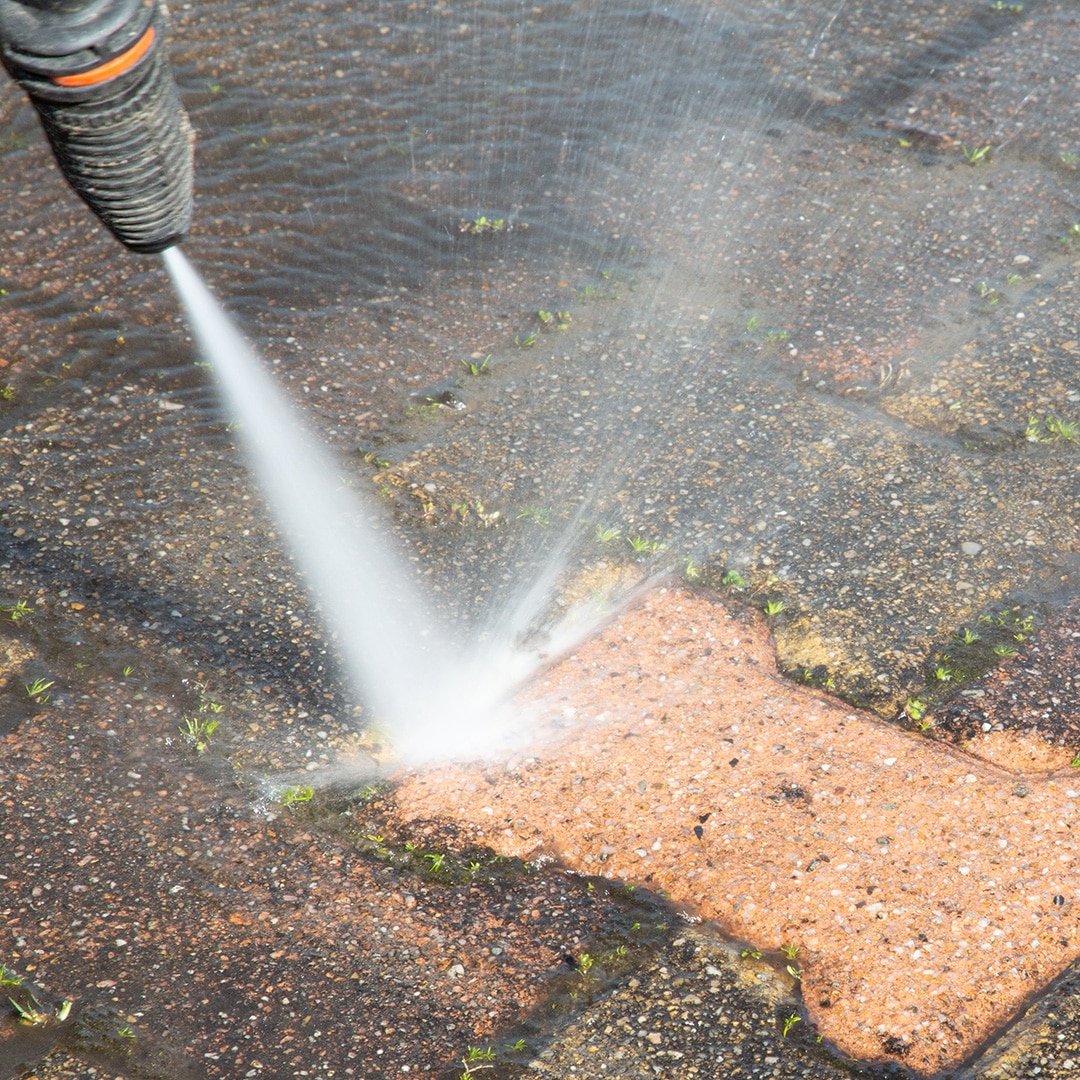The Environmental Benefits of Pressure Washing: A Cleanser Home and Planet
Pressure cleaning is more than simply an effective cleansing technique; it personifies a dedication to environmental stewardship. By making use of high-pressure water, this method minimizes the dependence on harsh chemicals, consequently decreasing dirt and water contamination. Beyond water preservation, pressure washing additionally plays an essential role in enhancing air quality by eliminating irritants and contaminants.
Lowers Chemical Use
Reducing chemical use is just one of the significant ecological advantages of pressure washing. Typical cleansing techniques frequently count heavily on extreme chemicals to effectively eliminate dust, crud, and spots from various surfaces. These chemicals can be damaging to the setting, contaminating soil and water resources, and positioning threats to both human health and wildlife. Pressure washing, on the various other hand, utilizes the power of extremely pressurized water to attain the very same, otherwise better, cleaning up outcomes without the need for these damaging compounds.
Pressure cleaning guarantees that surface areas are not just ostensibly tidy however deeply sanitized, protecting against the need for duplicated chemical applications over time. By adopting pressure cleaning, property owners and organizations can contribute to a cleaner environment, lower their environmental impact, and promote a healthier ecosystem.
Saves Water

A common yard pipe, for example, can consume to 10 gallons of water per min, whereas pressure washers average around 2-5 gallons per minute. This stark difference highlights the water preservation possibility of pressure washing, making it a more sustainable choice for businesses and homeowners alike. By utilizing pressurized streams, these tools make sure that every decrease of water is used effectively, reducing total intake and lessening waste.
Furthermore, the efficiency of pressure washing translates to faster cleaning times, which better adds to water conservation. Much less time invested cleaning equates to much less water utilized. For that reason, embracing pressure cleaning not only advertises cleaner surface areas but additionally sustains broader ecological sustainability by saving one of our earth's priceless resources. This makes it a compelling alternative for those committed to eco accountable techniques - power washing kansas city.
Boosts Air Quality
Pressure washing not only conserves water but also significantly boosts air top quality, offering an additional vital ecological advantage. By removing these toxins, pressure washing straight minimizes the amount of hazardous particles launched right into the environment.
Moreover, pressure washing can help mitigate the spread of spores and microorganisms that prosper in moist, unclean settings - pressure washing kansas city. When surface areas are completely cleaned, the likelihood of these microorganisms coming to be air-borne is diminished, causing a much healthier living environment. This is specifically essential in city areas where air top quality is typically compromised by greater degrees of pollution
In addition, pressure cleaning removes gunk and dust that can harbor volatile organic substances (VOCs) VOCs are chemicals that vaporize at space temperature level and can trigger substantial health concerns, including migraines and respiratory system problems. By properly cleaning surfaces, pressure cleaning reduces the existence of these harmful compounds, adding to a cleaner and more secure atmosphere. Therefore, pressure cleaning plays a vital function in improving air top quality and promoting overall ecological wellness.

Stops Surface Damage
The preservation of structural integrity stands as a vital environmental benefit of pressure cleaning. Surface areas such as wood, block, and concrete can gather dust, mold, algae, and other impurities with time. These aspects are not only unsightly yet additionally add to the gradual wear and tear of materials. For mold, instance and algae can retain moisture, which brings about the degeneration of wooden frameworks and the erosion of concrete and block surfaces. Regular pressure washing effectively eliminates these hazardous substances, consequently avoiding surface area damage and lowering the need for constant repair work or substitutes.
In addition to biological impurities, pollutants like oil, grime, and oil can likewise choose surface areas, especially in metropolitan and commercial atmospheres. These toxins can create staining and damage the structural components in time. Pressure cleaning gets rid of these residues, ensuring that the surfaces stay undamaged and durable. By alleviating surface area damages, pressure cleaning aids in maintaining the original strength and appearance of various materials, thus contributing to a more sustainable and environmentally-friendly living environment. This proactive method to maintenance not only supports the longevity of structures but also minimizes the waste generated from early replacements.
Improves Residential Property Durability
A crucial advantage of pressure cleaning is its capability to considerably enhance property long you could check here life. Routine pressure cleaning eliminates hazardous substances such as mold and mildew, mildew, algae, and dirt that gather on surfaces gradually. These pollutants can cause extreme degradation to structure materials, leading to early aging and the requirement for costly fixings or replacements. By removing these representatives, pressure washing aids to protect the structural stability and aesthetic allure of homes and commercial residential properties.
Additionally, the elimination of destructive components like salt and pollutants from surfaces such as concrete, timber, and metal can stop the start of rust and decay. This aggressive maintenance technique makes certain that materials like house siding, decks, and driveways remain in ideal problem for a longer period. As a result, property owners can prevent constant maintenance cycles and the environmental effect related to the production and disposal of building and construction materials.
Furthermore, pressure cleaning can likewise expand the life of paint and coverings. By keeping surfaces clean, it minimizes the requirement for constant repainting, hence preserving sources and decreasing chemical runoff into the environment. Overall, pressure cleaning is a sustainable practice that contributes to both building long life and environmental preservation.
Conclusion
In summary, pressure cleaning deals significant ecological benefits by minimizing the dependence on rough chemicals, preserving water, boosting air top quality, and protecting navigate here against surface area damages. This approach not just expands the long life of products yet also adds and sustains sustainable practices to a healthier ecosystem. By adopting pressure cleaning, a cleaner home and planet can be attained, therefore advertising both environmental stewardship and the health Full Report of surrounding neighborhoods.
In addition to minimizing chemical usage, pressure cleaning likewise preserves water, underscoring its ecological advantages. Taking on pressure washing not just promotes cleaner surface areas however also sustains broader ecological sustainability by saving one of our planet's valuable resources.Pressure washing not just conserves water yet likewise considerably boosts air high quality, presenting one more key ecological benefit. By successfully cleaning surface areas, pressure cleaning decreases the visibility of these hazardous substances, contributing to a cleaner and more secure environment.In recap, pressure cleaning deals considerable ecological advantages by lowering the reliance on extreme chemicals, conserving water, enhancing air top quality, and stopping surface area damage.